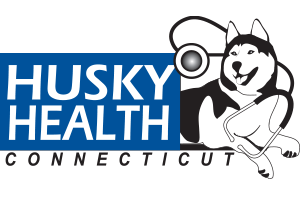
CMO Corner: Lawrence Magras, MD, MBA, FHM, FAAPL
A trend analysis using data from the National Ambulatory Medical Care Survey (NAMCS)1 showed that the co-prescribing of benzodiazepines and opioids increased from 0.5% of physician office visits in 2003 to 2.0% in 2015, and in 2015, opioids were prescribed at 26.4% of visits at which there was also a benzodiazepine prescription. The concomitant use of these medications increases the risk for severe respiratory depression and death. . . read more
Having recognized this threat, the Centers for Disease Control and Prevention (CDC) in a 2016 guideline2, advised practitioners to avoid the concurrent use of opioids and benzodiazepines whenever possible. In addition, in a 2016 Drug Safety Communication3, the U.S. Food and Drug Administration (FDA) urged healthcare professionals to limit the concomitant use of opioid pain medications and benzodiazepines or other CNS depressants to patients for whom alternative treatment options are inadequate. They further recommended that when these medications are prescribed together, the dosages and duration of each drug should be limited to the minimum possible to achieve the desired clinical effect.
Nevertheless, concurrent prescribing continues to be common practice among physicians. Data from the National Institute on Drug Abuse (NIDA)4 show that 11,537 overdose deaths involving benzodiazepines occurred in 2017. Approximately 85% of the 2017 overdose deaths involving benzodiazepines also involved an opioid.
In an effort to assist prescribers in mitigating this risk, Community Health Network of Connecticut, Inc.® (CHNCT) has launched a new initiative notifying primary care providers when one or more of their patients has filled at least one prescription for a benzodiazepine in addition to one or more prescriptions for opioid medication within a 90 day period. Providers will receive a quarterly mailing that includes a drug utilization report listing the prescription information along with the NPI of the prescribing practitioner(s). We hope you find this initiative helpful and welcome your feedback so that we may continue to support Connecticut Medical Assistance Program (CMAP) providers in improving the health outcomes of HUSKY Health members.
References:
https://www.cdc.gov/nchs/data/nhsr/nhsr137-508.pdf
https://www.cdc.gov/mmwr/volumes/65/rr/rr6501e1.htm
https://www.drugabuse.gov/drug-topics/trends-statistics/overdose-death-rates

Coronavirus (COVID-19), Pregnancy, Breastfeeding, & COVID-19 Vaccine
The Healthy Beginnings Intensive Care Management program is designed to assist members during the prenatal and postpartum period, as well as those who have spent time in the neonatal intensive care unit (NICU) up to a year after post-NICU discharge. . . read more
In an effort to address health equity, the ICM program provides support pre-pregnancy, during the perinatal phase, and postpartum by offering education on topics such as interconception care, pregnancy, and breastfeeding during COVID-19. Lactation counselors provide individualized breastfeeding support, including how to get started, obtaining a breast pump, reportable signs/symptoms, and preparing to return to work.
Intensive Care Managers are able to mitigate social determinants of health (SDOH) needs and assist members with managing complex comorbidities such as hypertension, diabetes, and asthma while providing education on COVID-19. Evidence-based education is provided in accordance with CDC guidelines such as social distancing, handwashing, wearing a mask, reportable symptoms, and testing sites. COVID-19 targeted outreach continues to disseminate information to the perinatal population; a post-survey is conducted to ascertain members’ understanding and relevance of the information.
With the increase in use of telemedicine during COVID-19, videoconferencing has been used as a platform to increase members’ comfort level in using the technology to communicate with providers and address their healthcare concerns. Videoconferencing is also used as a way to support perinatal members during the pandemic and reinforce education provided with face-to-face interaction.
ICM has added live online Perinatal Learning Groups to bring members together to learn about preparing for labor. Perinatal nurses facilitate the group and members have the opportunity to ask questions pertaining to labor and birth. A discussion also occurs regarding how the hospital experience may appear different as a result of COVID-19. If you’d like to offer these perinatal learning groups to your HUSKY Health patients, please direct them to portal.ct.gov/husky followed by “Information for Members,” then click “Health & Wellness,” then “Health News & Events,” or visit this link: https://www.huskyhealthct.org/members/health-events.html.
ICM also promotes and educates on immunizations including COVID-19 vaccination. The CDC states, “Getting vaccinated is a personal choice. Any of the currently authorized COVID-19 vaccines can be offered to people who are pregnant or breastfeeding.” It is understood that the overall risk of severe illness is low; however, pregnant people are at an increased risk for severe illness from COVID-19 when compared to non-pregnant people. According to the CDC, “Based on how these vaccines work in the body, experts believe they are unlikely to pose a risk for people who are pregnant.”1
Pregnancy is an exciting time and COVID-19 added new challenges and concerns for our members. To help ensure members have current, evidence-based guidelines, the most up-to-date information available from the CDC was emailed to all HUSKY Health households on COVID-19 risks and precautionary measures to take during pregnancy and breastfeeding, as well as signs/symptoms to be aware of and report to their providers.2
References:
https://www.cdc.gov/coronavirus/2019-ncov/vaccines/recommendations/pregnancy.html
https://www.cdc.gov/coronavirus/2019-ncov/need-extra-precautions/pregnancy-breastfeeding.html

Quality Management Spotlight
The COVID-19 pandemic has changed the face of healthcare. Many practices have had to adjust by reallocating resources, reducing staff, closing sites, and limiting hours of service; all of which have impacted revenue. Practices have developed new processes and innovative ways to continue to provide preventive care and follow-up visits to patients with chronic conditions. The expansion of telehealth has assisted with the provision of these services. . . read more
Community Health Network of Connecticut, Inc.® (CHNCT) has a team of Quality Management (QM) staff who have worked with practices on quality improvement initiatives (QI) including those required to obtain and/or maintain National Committee for Quality Assurance (NCQA) certification to participate in the Connecticut Department of Social Services (DSS) Person-Centered Medical Home (PCMH) program. Through their work with the practices and correspondences during the pandemic, the QM team has seen various ways in which practices have provided services to their patients. Some practices see sick patients on specific days and well-visits on other days, others are only seeing well-visits in the office, and many others are doing sick visits by telehealth or drive through. Practices provide aspects of well-care, including needed immunizations and screenings and flu shots outside the office in a tent or drive through. There has been an increase in behavioral health screenings for younger ages (6-10) using telehealth in some practices. There has even been reductions in emergency department (ED) visits by using telehealth after hours.
CHNCT developed portal reports that identify HUSKY Health members with gaps in care which many practices have incorporated into their workflows. There are currently twenty-eight reports available. The QM team assists practices with these reports and other QI opportunities. The use of practice portal reports in combination with their own Electronic Medical Record (EMR) report data evaluation, and implementation of changes in practice processes has contributed to steady improvement in multiple measures.
Examples of practice improvement:
- One practice had a decrease in the rate of readmissions for physical & behavioral health from 12.07% to 3.45% (71.4% change)
- The practice used admission/discharge and ED reports to call and follow up with members
- An appointment was made to see the PCP within 3-5 days
- Another practice had a decrease in the rate of ED Utilization from 63.17 to 56.06 (11.3% change)
- Members were educated about calling the practice first before going to the ED
- Providers were available for those calls
- Practice had open access and members got appointments the next day
- A third practice also increased their HPV immunization rates from 16.7% to 28.1% (68.3% change)
- This was a priority measure for the practice in 2019 and was part of QI efforts
- Education began with the providers in addition to educating members/families
- The focus of the need for the vaccine was changed with the families/patients from relating to sexual activity to cancer prevention
In addition, CHNCT assists practices to obtain their NCQA PCMH recognition. Participation in the program enables practices to receive additional enhanced rates with the use of selected service codes and through evaluation of annual quality measures. The evaluation, based on the number of HUSKY Health members in a practice’s panel, provides both performance and improvement payments for qualifying practices.
For more information about the DSS PCMH program and how CHNCT can assist you with obtaining NCQA PCMH Recognition, contact us at 203.949.4194 or email pathwaytopcmh@chnct.org.

